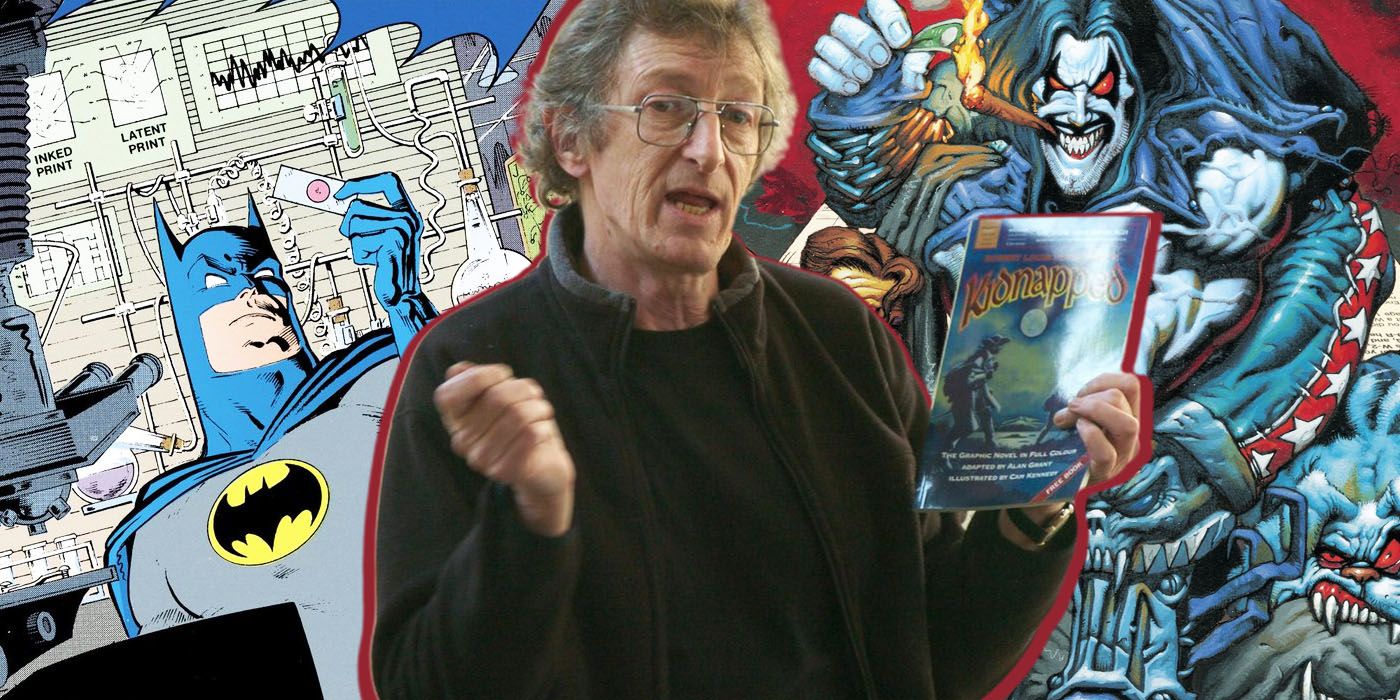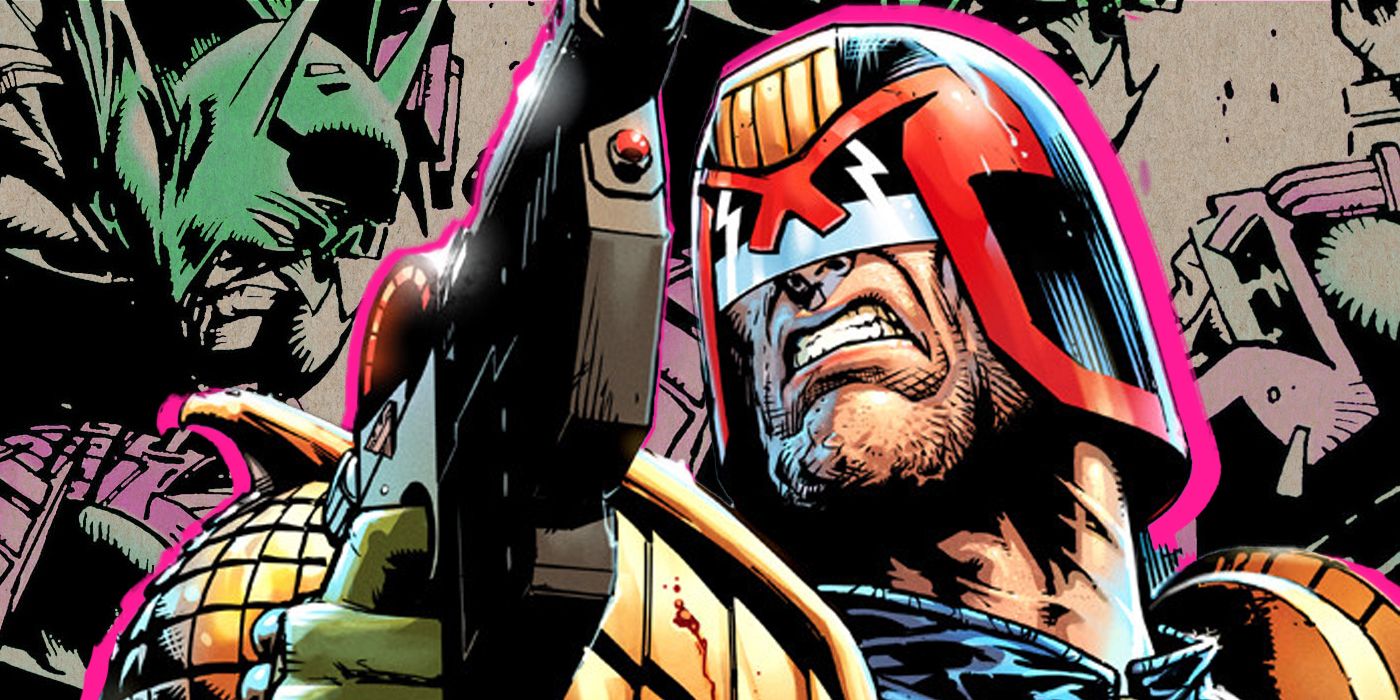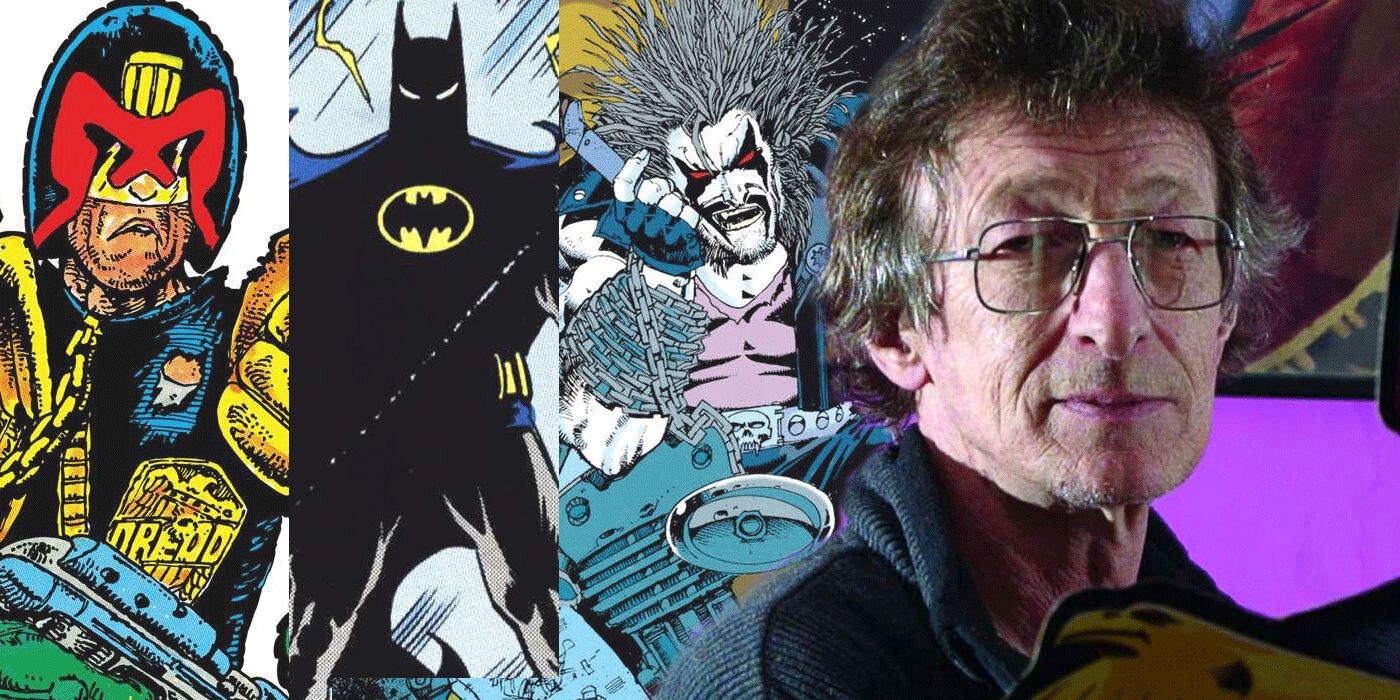Comic book legend Alan Grant passed away this last week at age 74. Grant's multi-decade-long career, especially his 80s/90s time at DC and his discovery of young talent, including Alan Moore, is a legacy with an indelible impact on the entire industry.
Grant was born in Bristol and grew up in Scotland. He entered the industry in 1967 as an editor. His first notable comics writing job was on 2000 AD, a publication that he would continue to write for through the 90s. Throughout his career, Grant would write for nearly every one of the major comic book publishers in the world.
His most enduring contribution to the industry will likely be his curation and encouragement of new talent. Grant's eye for new talent was remarkable. It was Grant who found, at the time, unknown writer Alan Moore's first script in the slushpile at 2000 AD. Grant penned Moore a personal letter encouraging the young writer at the time. "I got a brilliant letter back from Alan Grant. He went out of his way to encourage people who he thought had talent," Moore noted. In Grant's words, Moore was "a really f***ing good writer." Grant would continue to guide Moore on improvements to his writing, helping Moore land regular work at 2000 AD. Alan Moore's entry into the comic books industry forever altered its trajectory. Moore would go on to write classic tales, including Watchmen, V for Vendetta, Batman: The Killing Joke, and From Hell. Described as a key pillar of comics' evolution, Moore's work, along with others like Neil Gaiman and Frank Miller, shifted the tone of comics to include mature themes. Without much fanfare, Grant's support of young talent, Moore in particular, created the landscape for this new era of comics.
During the early 90s, Grant had a stellar run on DC Comics' Batman titles, particularly Batman: Shadow of the Bat. Grant wrote 82 issues of that series alone. On that run, he created notable Batman villains Jeremiah Arkham, self-scarring serial killer Victor Zsasz, and the two-man show of Ventriloquist. His time on Batman would span over a decade. From 1988 through the late 90s, Grant was one of the leading writers consistently penning Batman tales. Grant would also have a long run on various Lobo titles, again bringing his uniquely sharp voice to the anti-hero character.
Grant's work for DC is filled with stories that shifted the tone of the industry. While, by that time, Frank Miller's Batman: The Dark Knight Returns had, along with Moore's work, catalyzed a transformation within the industry, it was writers like Grant who worked that mature voice and perspective into their long runs on classic characters. Miller and Moore shifted the tenor of comics, but Grant was one of the few creators that integrated that sharp and intricate style into the ongoing series of the days.
For years, Grant's writing partner was John Wagner, the creator of Judge Dredd. The two were old friends and shared a farmhouse in Essex. Together, the two would join the "British Invasion" of American comics in the 1980s, first writing the 12-issue series Outcasts for DC Comics. After a break in their partnership over the direction of the Marvel series The Last American, the two would later team up for a series of Batman/Judge Dredd crossovers.
Since the announcement of his passing, the tributes have continued to pour out from all corners of the industry. DC writer Tom King reflected on Grant's career and death: "Horribly saddened to hear of the passing of Alan Grant. Lobo, LEGION, Batman—these books questioned what superhero comics could be and do: they were sharply, cooly cynical, and yet oddly—and wonderfully—they contained a powerful, warm undercurrent of hope. Hell of a writer. RIP." His original publisher, 2000 AD, praised Grant's writing: "Grant was one of his generation's finest writers, combining a sharp eye for dialogue and political satire with a deep empathy that made his characters seem incredibly human and rounded. Through his work he had a profound and enduring influence on 2000 AD and on the comics industry."
Grant's legacy will be remembered for years to come as his creative contributions are now populating film and television interpretations of classic stories. Ultimately, through both his writing and involved support of brilliant creative voices like Moore, Grant changed the entire industry.



